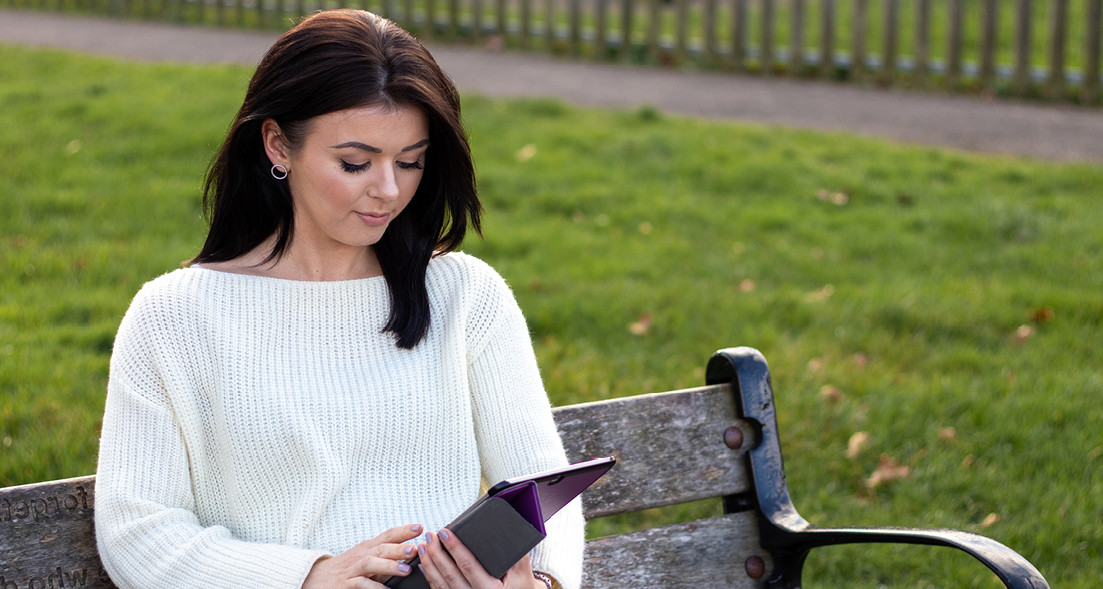On 6 July, one of our Involvement Champions, Phillipa Anders, attended an event in Westminster organised by the All-Party Parliamentary Group on Cancer (APPGC) to speak with decision-makers about her experience with brain tumours.
The hour-long session brought together parliamentarians, stakeholders from across the cancer sector, healthcare professionals, and people with lived experience of cancer to discuss key priorities ahead of the launch of the new 10-Year Cancer Plan for England.
Phillipa said: ‘I was there as someone with lived experience: my husband, Rob, died in December 2020, two weeks after being admitted to hospital and five days after being given the news that he had a grade 4 brain tumour, a glioblastoma. He was told he would have surgery the following week and then to expect 6 months of radiotherapy and chemotherapy. However, this never happened – he died on the day his surgery was scheduled to happen, in Addenbrooke’s Hospital after a middle of the night rush to A&E. He was 49.’
She adds ‘I felt truly humbled to have been invited to attend this event. It’s never easy to speak about such traumatic loss, especially in public, but I feel passionately that this is something I have to do. It also helps bring something positive from such a heart-breaking situation. If it can make even the tiniest bit of difference in the world around awareness, earlier diagnosis and improved care then it has to be right. Rob’s story needs to be told – even if my voice is shaking and my knees are trembling…’
The session took the form of an open discussion, focusing on four broad themes: early diagnosis, personalised care, workforce and tackling inequalities. Phillipa shared her personal story and listened to others speak about the impact of early diagnosis on cancer treatment and care.
She said: ‘It is essential that brain tumours are diagnosed at the earliest possible opportunity to allow referrals and support to be put in place, but brain tumours aren’t ‘staged’ in the same way as other cancers and this needs to be factored into the NHS targets and ambition. The 10-Year Cancer Plan should include greater awareness and understanding of signs and symptoms, in healthcare settings, work settings, and the broader community.’
She adds: ‘I am now far more aware of the symptoms of a brain tumour than I was. I can look back and see the signs that perhaps, in hindsight, something wasn’t right.’
The discussion moved on to the topic of personalised care and workforce, with Clinical Nurse Specialist (CNS) highlighted as vital for those diagnosed with a brain tumour in order to help patients and families understand and coordinate care and other support.
Phillipa highlighted the need for Holistic Needs Assessments (HNA) to be offered at the point of diagnosis, providing much-needed support in treatment & care, and signposting to specialist services.
She adds: ‘This didn’t happen for us. Based on my experience, better support for patients and families is vital. Rob was sent home with no support or advice given, or even an update on how he was – no signposting to the excellent charities out there, nothing to support us physically, emotionally … He went in walking and talking and four days later when we were asked to pick him, he couldn’t walk, talk, feed himself … we had no time to adapt anything at home…’
To conclude, the discussion moved onto tackling inequalities. Phillipa says ‘from my experience, there is also an inequality around different cancers: my Mum had breast and ovarian cancers and my Dad currently has prostate cancer. Both were diagnosed very quickly and treatment was put in place leaving both of them with an excellent prognosis. When you factor in that brain tumours are the biggest cancer killer of children and adults under 40, it is simply not OK that so many are diagnosed as an emergency admission.’
The APPGC event reflected the need for improved awareness and communication, improved and more effective relationships between patients and healthcare professionals, stronger leadership, improved IT systems and digital solutions in the NHS, and improved workforce retention. The minutes from this meeting will be circulated to the new Health Minister, members of staff at NHS England, as well as various MPs who are involved in the APPGC.
The 10-Year Cancer Plan was due to be published in July but has now been slightly delayed. We recently joined One Cancer Voice to write to the Conservative leadership candidates asking them to view the publication of the plan as a top priority.

Share your experiences and help create change
By taking part in our Improving Brain Tumour Care surveys and sharing your experiences, you can help us improve treatment and care for everyone affected by a brain tumour.
